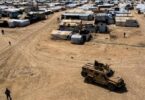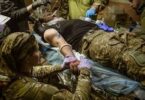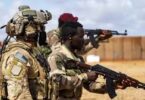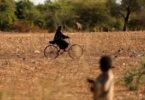LAGOS (AA): At least 3.6 million people are in dire need of water and hygiene services in Nigeria’s terror-hit northeast region, with more children dying of poor access to water than of violence, UNICEF said on Friday. In a report published on World Water Day, the global body said the Boko Haram crisis has cut people’s access to water in most parts of the region.
In “Water Under Fire”, UNICEF said the lack of access to water has led to outbreak of various diseases, including cholera, with children being the worst hit. “In north-east Nigeria, 5,365 people were affected by cholera, with 61 dying in 2017, while 12,643 people were affected and 175 died of cholera in 2018,” according to the report. Country Director of UNICEF in Nigeria Mohamed Fall said no less than 1.1 million displaced people were affected by the lack of access to water.
“Many of them are out-of-reach, in remote areas still impacted by conflict. About 800,000 people are in hard-to-reach areas and 79 percent of these are children and women,” the statement quoted Fall as saying. The report said children under the age of 15 living in countries affected by protracted conflict are, on average, almost three times more likely to die from diarrhea and other diseases caused by a lack of safe water, sanitation and hygiene than by direct violence. The report examines mortality rates in 16 countries going through prolonged conflicts, concluding that children under the age of five are more than 20 times more likely to die from diarrhea-related causes linked to a lack of access to safe water and sanitation than from direct violence.






